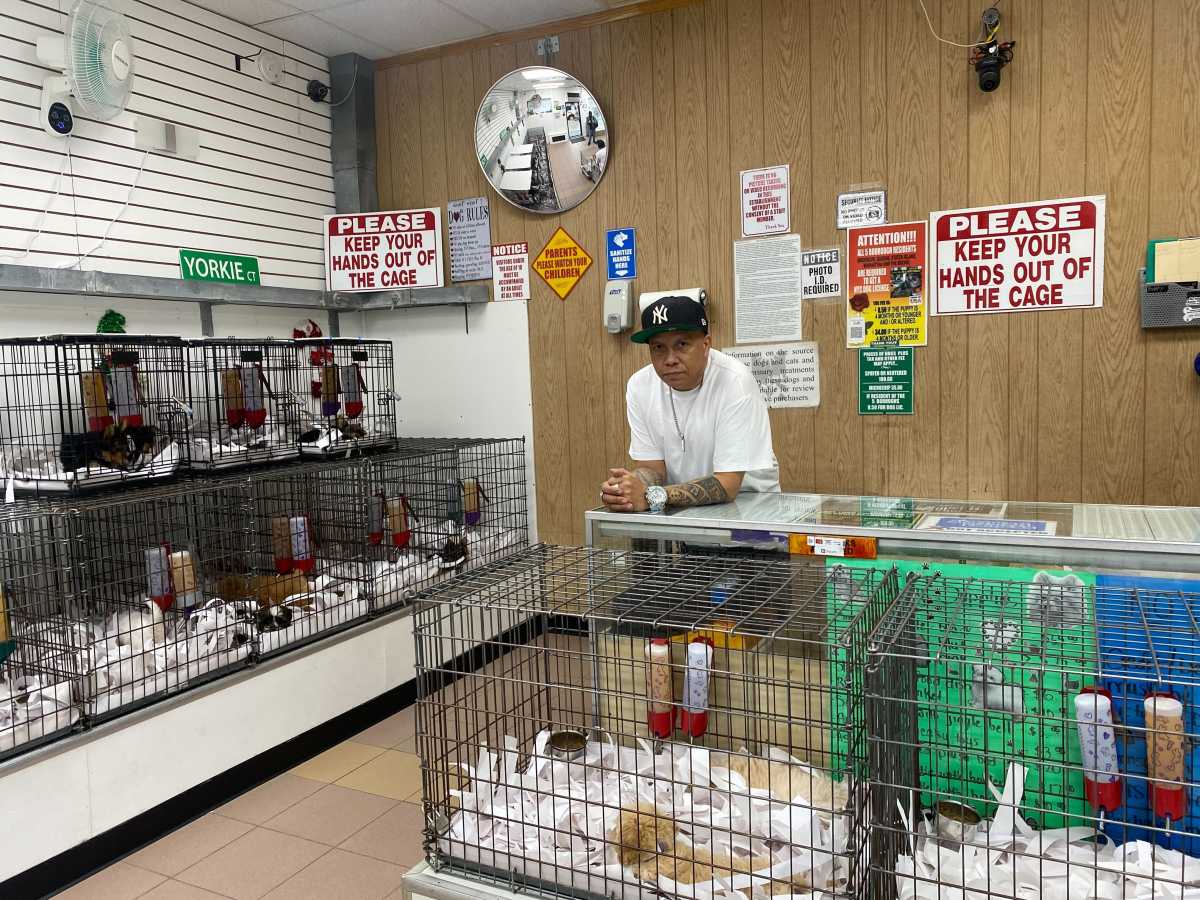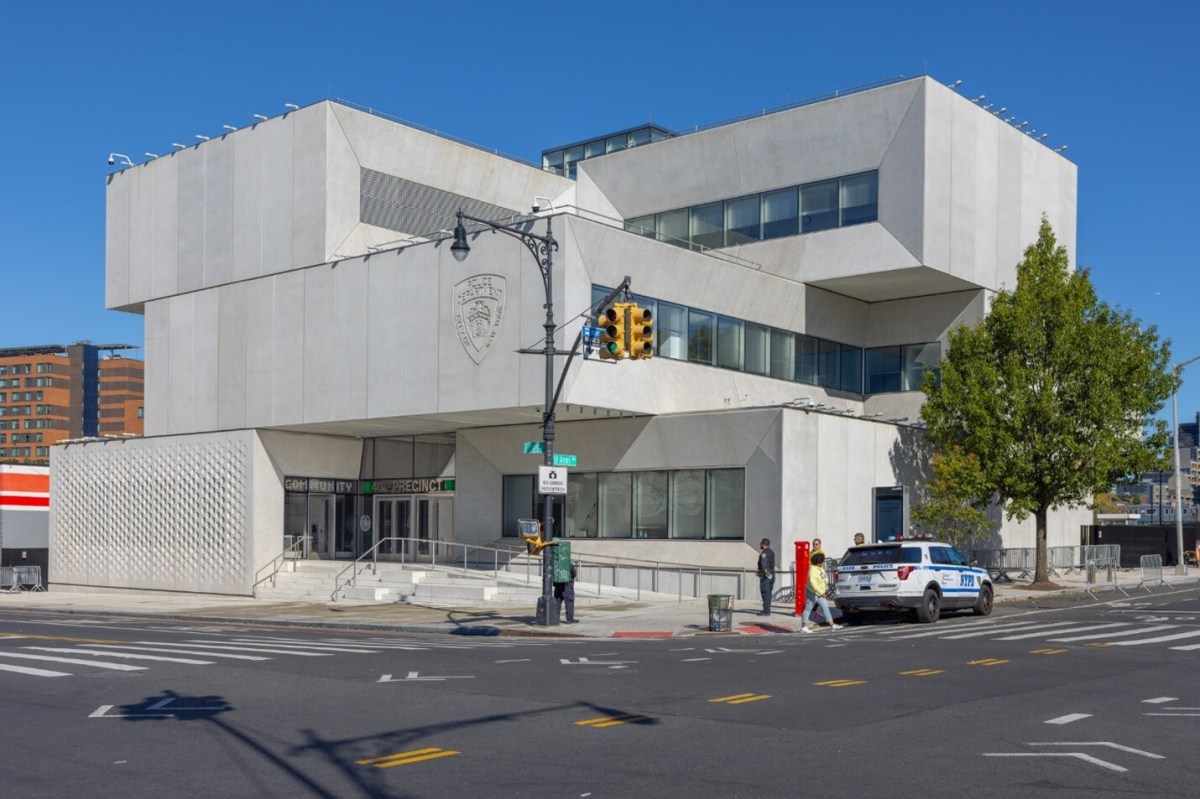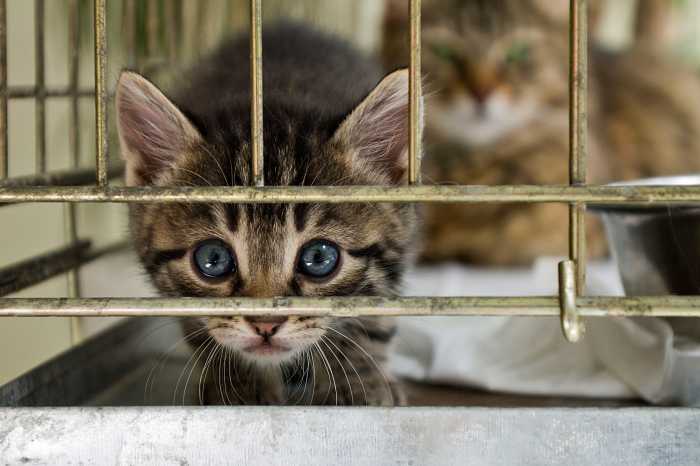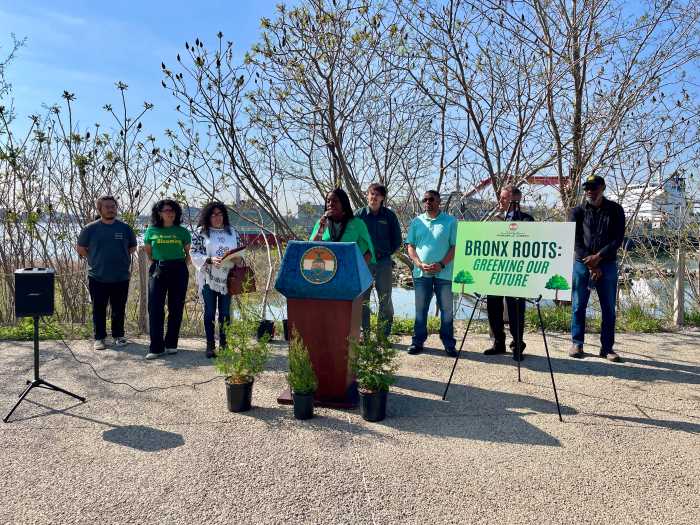A new state law banning the retail sale of pets has some longstanding NYC pet shop owners worried that the law will damage their businesses while also failing to protect animal welfare.
State records show there are currently 25 licensed pet dealers throughout the five boroughs: six in the Bronx, five each in Brooklyn and Manhattan, eight in Queens and one on Staten Island.
The Puppy Mill Pipeline Act, signed by Gov. Kathy Hochul in 2022, takes effect Dec. 15 and prohibits retail pet shops from selling dogs, cats, and rabbits. Queens state Sen. Michael Gianaris and Manhattan Assembly Member Linda Rosenthal co-sponsored the legislation. City legislation to reinforce the state law recently passed the City Council by a margin of 40 votes to 5.
However, the American Society for the Prevention of Cruelty to Animals (ASPCA) celebrated the passage of the law in 2022 as a “big win.” It said the ban will “end the flow of cruelly bred puppies into New York.”
In a statement reminding New Yorkers of the law, Attorney General Letitia James said that people looking for their next furry friend should adopt from local rescue agencies or go through a licensed breeder. “This pet sale ban will help put an end to the dangerous puppy mill to pet store pipeline that endangers pets and costs New Yorkers thousands of dollars in veterinary care.”
Shutting down shop
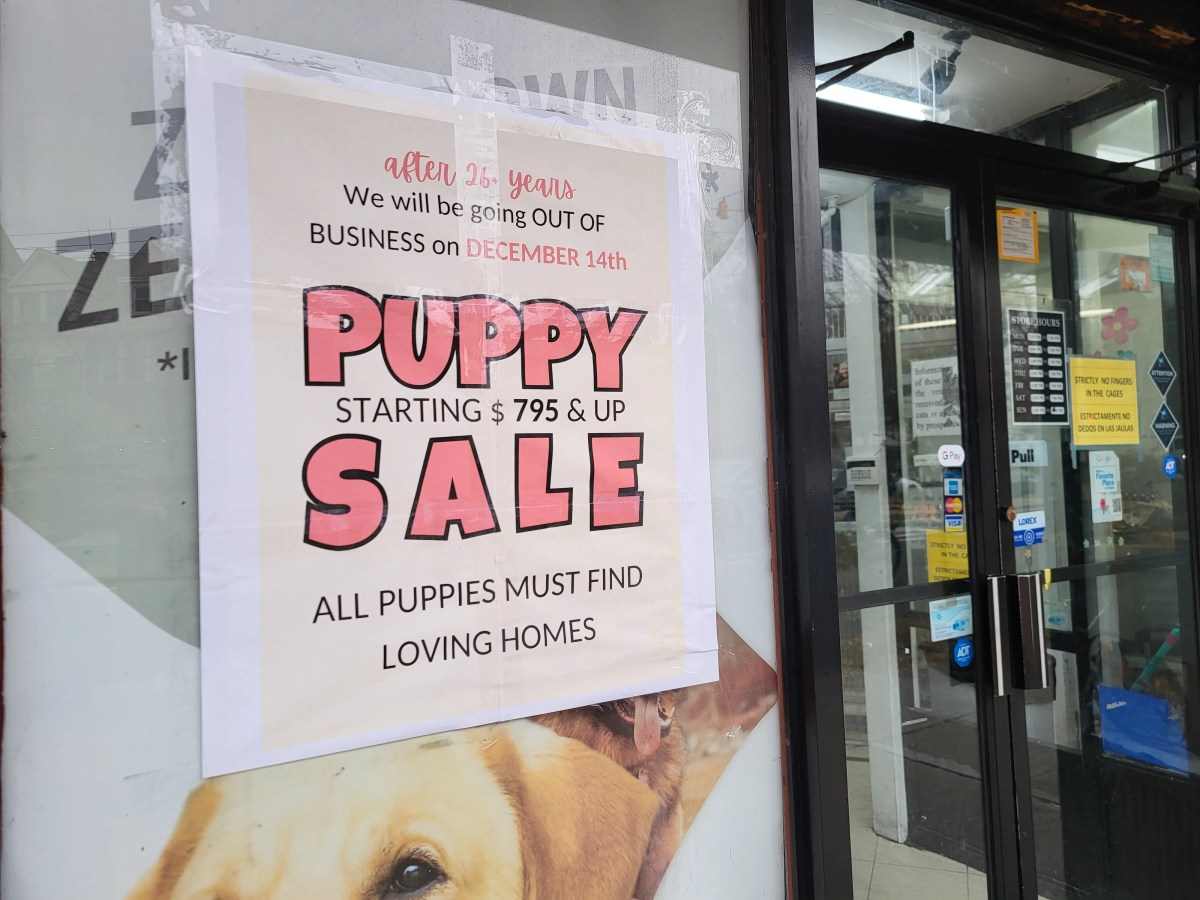
Across the five boroughs, some local pet store owners who say they’ve acted responsibly for years believe the law unfairly punishes them — and without their services, which are regulated by the city and state, they worry many New Yorkers will end up buying out of state, thereby decreasing local tax revenue, or perpetuating the underground market.
They are also concerned about their own bottom line and the welfare of their employees.
For some, the damage is already done. Zoo-Rama Pets on East Tremont Avenue in the Bronx, which opened in 1998, is slated to close on Dec. 14, the day before the ban takes effect.
During a recent visit, signs on the window announced the store’s impending closure and promoted a puppy sale with prices starting at $795. Over the past couple of weeks, Zoo-Rama has worked quickly to sell its inventory ahead of the law’s implementation and has found new homes for about three-quarters of its inventory, said a manager who requested not to be named in the story.
Although the store carries pet food and supplies and offers grooming services, the manager said 90% of profits come from the sale of animals, leaving a huge gap to fill when the ban takes effect.
“We are closing only because of this law,” he said. The Attorney General’s office declined to comment on the effects of the pet sale ban on local businesses.
The manager called the ban “very insane and unjust” and said Zoo-Rama plans to file for Chapter 13 bankruptcy protection while its six to eight workers file for unemployment. The store is also party to a newly filed lawsuit against Hochul in the State Supreme Court of Suffolk County, aiming to stop the law.
The manager said his store is doing everything right, even exceeding state and city standards. All puppies are checked by three different veterinarians (including at least one that is USDA-certified) and come with NYC pet licenses and records of vaccinations and a fecal exam, which the manager said is not required. New owners also receive a thick packet of documents proving each animal’s breeder and health history.
“We did the right thing by providing quality puppies with all the paperwork,” the manager said. “I’m really sad about this.”
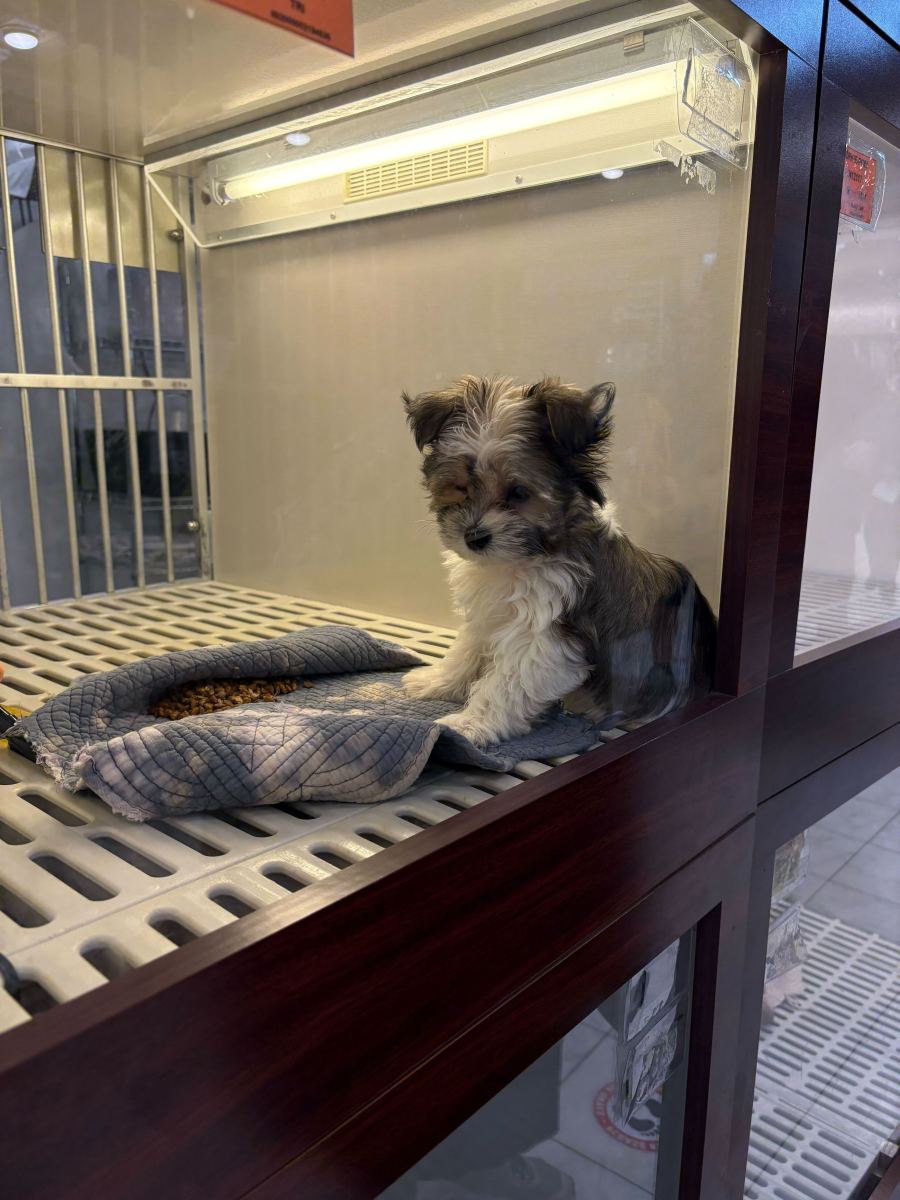
Meanwhile, City Pets, which has a location in Chelsea, Manhattan, is selling off all of its puppies before Dec. 15 — and it’s future remains rather questionable with the new law in place.
One long-time store employee, who identified himself as Norman, said the shop will likely close and relocate out-of-state. For the company, it no longer makes sense to remain open since business is largely based on the sale of puppies.
“We’ve been here 40 years. People know who we are,” Norman said, adding that buyers who come to City Pets “don’t want rescue dogs.”
“I enjoyed working here,” Norman added.
‘We’re trying to fight’
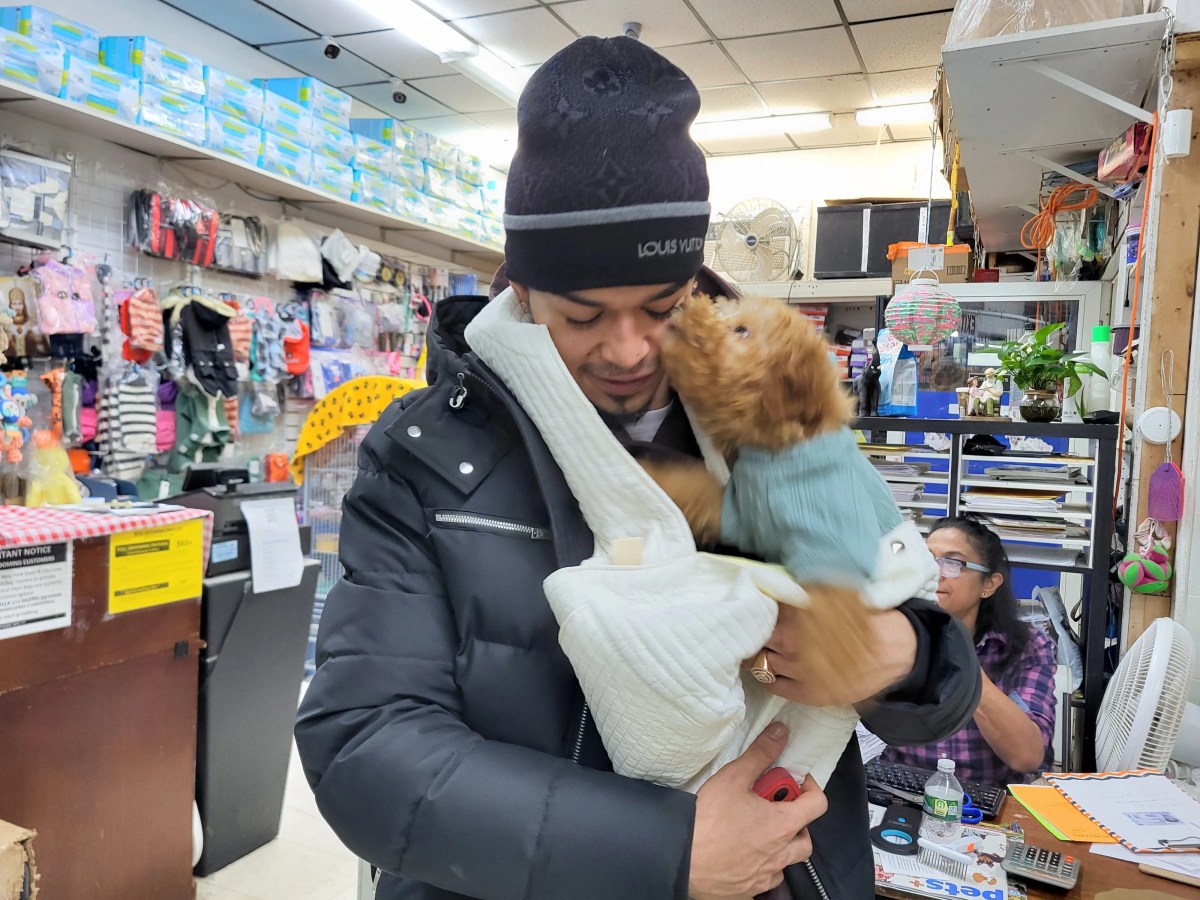
Nasser Ahmed, owner of Vanity Pups in Bayside, Queens, said his store has always offered a variety of other services such as grooming, daycare and accessories and said the store will be pivoting to focus entirely on such services once the law comes into effect.
However, he anticipates a challenging period once the law comes into effect on Sunday and he is bracing for a huge hit to the store’s revenue. Ahmed said he would be letting go of four staff members and would reduce the number of staff at the store from five to one until he could gauge the impact that the law has had on his business.
“A lot of stores are closing,” Ahmed said. “I’m going to have to let go of basically my entire staff and come down to just me running the store until I see how things go along, but I’m expecting a huge hit as far as revenue goes. So it’s going to be very challenging to stay open. We’ve been here for 26 years, so we’re trying to fight to stay open to keep this place going. We know we’re going to be here for 2025, but we’re really in question about 2026 and going further, depending on how the next year looks.”
Ahmed said he has been informing his staff to look for opportunities since Hochul signed the legislation into law in December 2022.
He believes that the law will not be effective at clamping down on puppy farms, stating that breeders will now be able to raise their prices when selling to New Yorkers directly. He also believes New Yorkers in search of a new pet will travel to neighboring states such as Connecticut or New Jersey, where pet stores will still be free to sell dogs, cats and rabbits.
He added that the law is a “bad way” to address puppy farming and that it would be much more effective if the state legislature implemented a practice of identifying which pet stores are using “bad breeders.”
Benjamin Santiago, the general manager of Puppy Boutique in Bensonhurst, spoke to us Monday while surrounded by some 20 pups he hopes will be sold before Sunday’s deadline.
“We’ll figure something out. These guys are not going to go back anywhere. They’re going to end up being in someone’s home. I’ll even grab a couple myself,” he said.
According to Santiago, Puppy Boutique has been on 80th Street between 16th and 17th avenues for the last 30 years and employs about 12 workers, who are now concerned for their livelihoods.
He stressed that their pets come from reputable breeders inspected by the FDA.
“I understand that they’re trying to cut off the puppy mills, but was does our pet store have to do with that,” said Santiago. “The job of eliminating most of those puppy mills is for the FDA, they are supposed to handle that, not us. But it’s the mom-and-pop stores who are paying for it.”
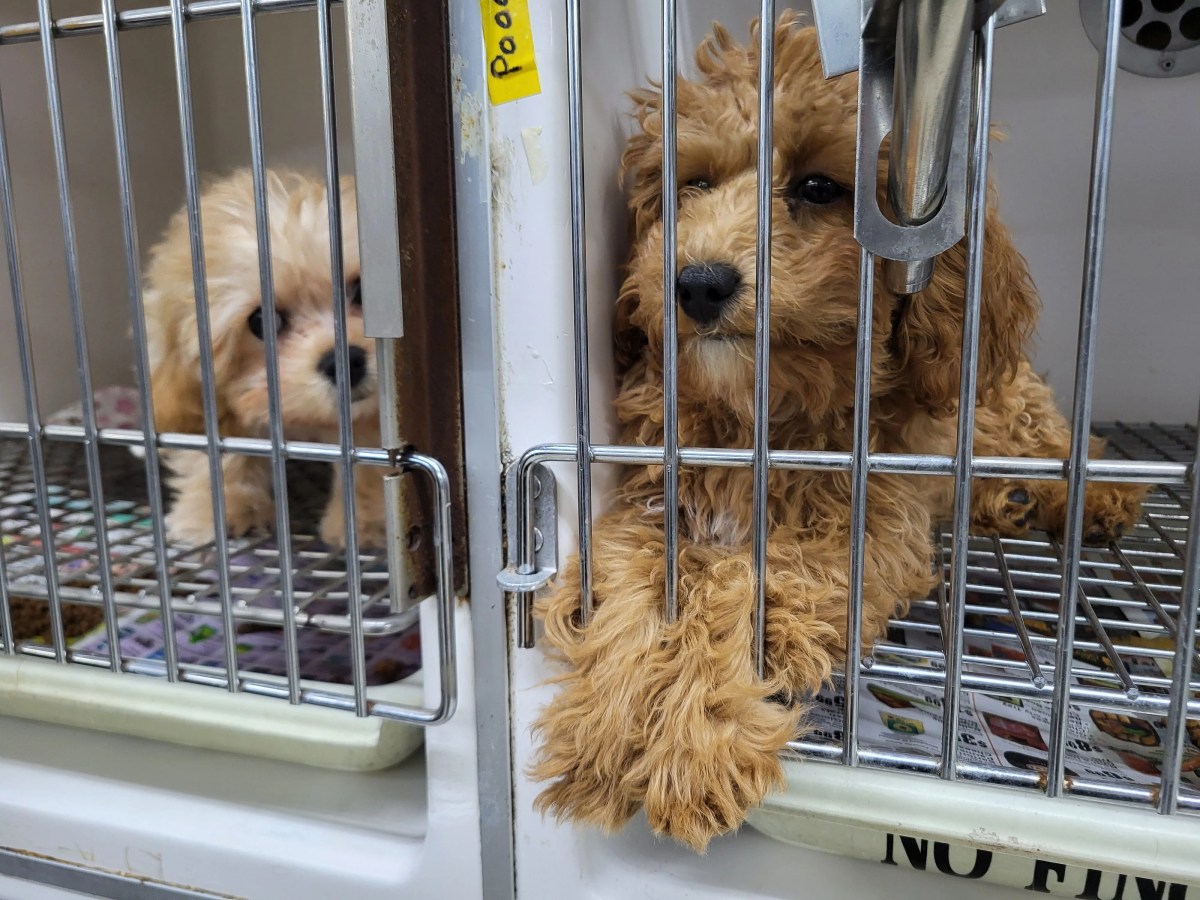
Stopping ‘backyard breeders’
On the other hand, LIC Feral Feeders, a non-profit dedicated to providing essential care to homeless and feral cats in Long Island City, has welcomed the new law.
Jannatul Ahmed, director of operations at the nonprofit, said she hopes the law will help eliminate “backyard breeders” and people who exploit animals for their entire life for financial benefit.
“If stores are no longer able to sell animals, the vision is really that they will remain pet stores and sell pet-related products,” Ahmed said. “But they will offer animals for adoption and help with moving the needle a little bit toward reducing the overpopulation of cats, dogs, guinea pigs, rabbits, you name it.”
Jenny Tsai, founder of Tiny Cuties, an Astoria-based service that sells puppies and kittens after ethically breeding them with “breeding parents”, said the law will force a number of New York City-based pet stores to shutter permanently or relocate to New Jersey.
Tsai said Tiny Cuties, which does not operate a storefront, will not be impacted by the incoming law and said it the legislation will help to eliminate puppy farming and clamp down on people who “don’t treat animals well.”



